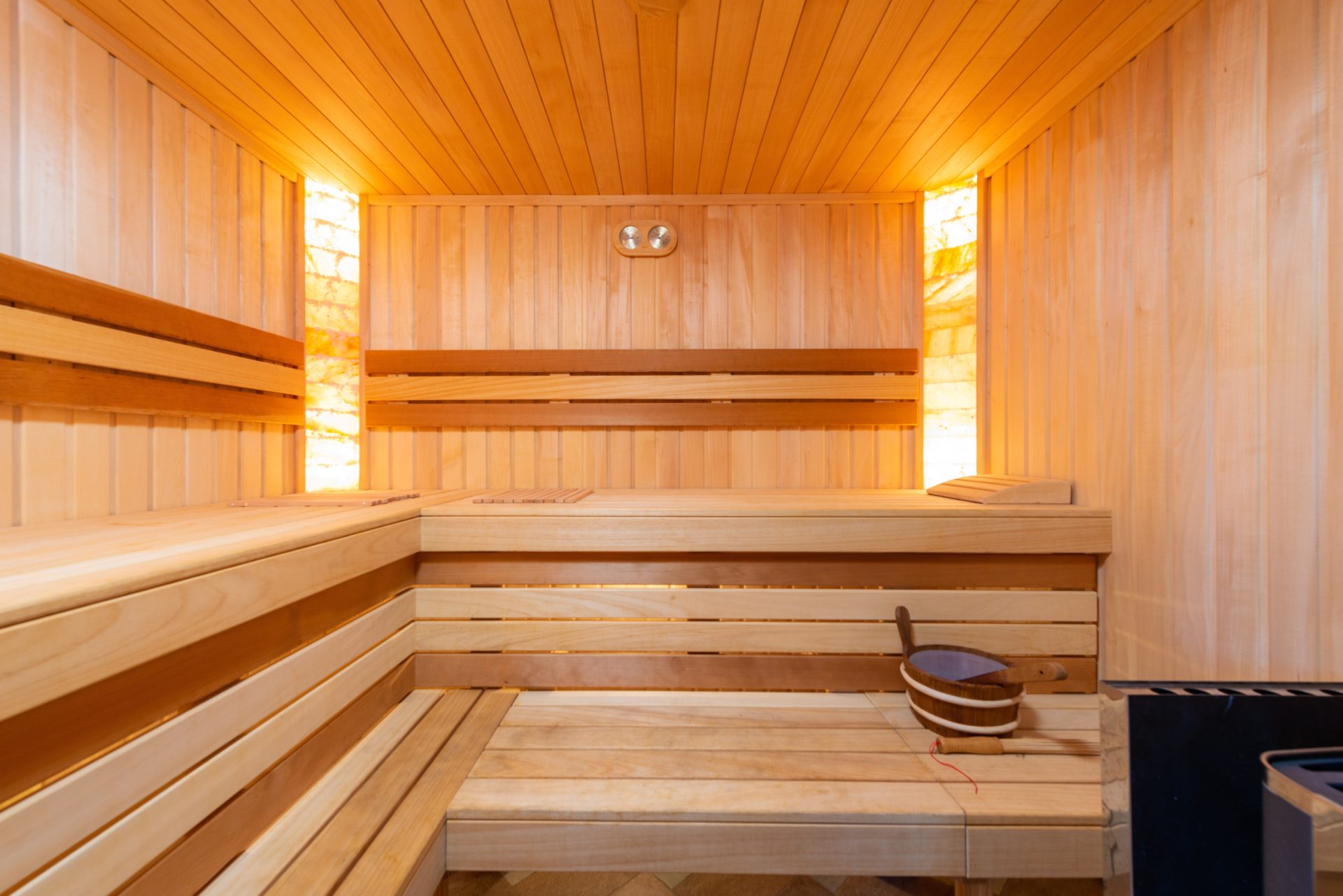Why are saunas good for your health?
Health can be defined as the body’s ability to adapt to its environment and maintain homeostasis.
Homeostasis is a state of internal stability where the body is able to function optimally. Our bodies have many physiological mechanisms in place to resist changes caused by stresses and maintain this state of homeostasis.
A healthy body is able to respond efficiently to stress and resist changes to its internal state to maintain optimal function. If the body fails to respond to stress and its internal state begins to shift outside of homeostasis, the body begins to lose function. This results in dysfunction, disease, and eventually death.
An example of this is body temperature. There is a narrow range of body temperatures where all the chemical processes necessary to maintain life are able to occur. If the temperature falls outside these ranges, we start to lose function.
When the body is placed in a hot environment, the nervous system senses this change. It then signals several physiological processes to begin cooling the body. The superficial blood vessels dilate, diverting more blood to the skin surface to release heat. The sweat glands also begin to release sweat which evaporates to cool your skin. Through these mechanisms, your body is able to maintain a steady core temperature even when placed in an uncomfortably hot environment.
The more the body is forced to adapt to external stressors to maintain homeostasis, the better it gets at doing it. We become more adaptable, and thus more healthy.
This is why saunas are so good for you. They put our body in a temporary, controlled stressful situation that forces our body to adapt to maintain homeostasis. The physiological changes that occur during this adaptation cause the wide range of health benefits people experience when they sauna.
10 Benefits of Sauna
1. Improves metabolism and promotes weight loss
When the body is heated, it takes a lot of energy for the body to cool itself down. This burns a lot of calories. The more our body is forced to burn calories, the better it gets at it.
Studies have shown that heat is able to convert white fat to brown fat.1 White fat is not metabolically active and is used for storing fuel. Brown fat is more metabolically active and is used to heat the body and burn white fat. As we age, we tend to lose brown fat and gain white fat. This process can be resisted by subjecting the body to extreme hot and cold temperatures.
2. Improves cardiovascular health
When we are in a hot environment, our cardiovascular system has to work hard to cool us down. Just like with exercising, our heart rate and blood flow increase. The more this happens, the stronger and more efficient our heart and blood vessels become.
A large-scale study showed that people that saunaed 2-3 times per week are 27% less likely to die of a cardiovascular event such as stroke or heart attack than those that only used sauned one time per week. The study also showed that those that saunaed 4-7 times per week were 50% less likely to die from a cardiovascular event.2 This suggests that the more often you sauna, the greater the cardiovascular benefit.
Another study showed that saunaing can lower your blood pressure.3
3. Improves longevity and promotes overall health
Researchers also found that frequent sauna users also had a 40% lower risk of all-cause mortality than infrequent sauna users.4 All-cause mortality refers to the rate of death due to anything. This means that frequent sauna users were found to be less likely to die in general. This study controlled for any confounding variables.
Two probable mechanisms for this phenomenon are the activation of heat shock proteins and a molecule called FOXO3 which combat the molecular changes associated with the aging process.
The proper function of our body relies on a diverse range of proteins all properly folded into specific structures. When proteins are heated, they begin to unfold and lose their function. This is one reason why the body needs to resist large changes in temperature. Luckily we have special proteins called heat shock proteins (HSPs) that are activated in response to heat and prevent the misfolding of other proteins.
Heat also triggers the body to produce a special protein called FOXO3. It is involved with DNA repair and clearing out dead cells.
The accumulation of DNA damage and dysfunctional proteins are causes of the aging process, disease, and death. Both of these can both be offset by the activation of proteins triggered by the body’s response to heat.
To learn more about longevity and the aging process, read our blog about oxidative stress here.
4. Promotes cognitive health and protects against neurodegenerative disease
Heat has been shown to increase levels of brain-derived neurotrophic factor.5 This molecule promotes the growth of new neurons in the brain.
Saunaing also lowers your risk for neurodegenerative disorders like dementia and Alzheimer’s.6 These diseases are caused by the accumulation of dysfunctional proteins in the brain. The activation of HSPs and increased blood flow to the brain are both probable mechanisms for this benefit.
5. Improves mood and mental health
Situations that are acutely stressful and uncomfortable like intense exercise or sauna have been shown to improve our capacity to feel good.
When the body is under stress it produces endorphins. Some of these molecules bind to opioid receptors in the brain causing feelings of pleasure and euphoria. These molecules are responsible for the “runner’s high” we get from intense physical activity. Other endorphins called dynorphins are responsible for the bad feelings we get when we are in an uncomfortable situation. When we are uncomfortably hot, these dynorphins are activated. This causes feelings of agitation, stress, and pain. However, dynorphins also increase the expression of receptors that bind the pleasure endorphins, increasing our capacity to feel good. In this way, brief discomfort in the sauna is able to improve the efficiency of the pathways that make us feel good afterwards.
This mental benefit goes beyond just improving mood. One study looked at 2,000 participants with no history of psychiatric disorders. It found that those that saunaed more frequently had lower risk of developing psychiatric disorders.7
Other studies have shown decreased symptoms of depression with saunaing that persists for up to 6 weeks after the session.8
6. Improves immune function
Sauna temporarily raises body temperature like fever, helping to fight off an infection. Studies have shown that sauna can decrease the incidence of respiratory illnesses including the common cold and pneumonia.9 One study found that a single sauna session increased levels of white blood cells which are the immune cells responsible for fighting infection.10 HSPs have also been shown to activate immune responses.11
7. Decreases pain
Sauna heat warms and relaxes joints and muscles providing relief from musculoskeletal pain. The production of endorphins that bind opioid receptors also provide natural pain relief.
8. Decreases inflammation
Chronic inflammation is the cause of most of the diseases that affect us. Sauna use has been found to lower levels of C-reactive protein, a molecule used to measure levels of inflammation in the body.12
To learn more about reducing inflammation, read our blog about omega-3s here.
9. Enhances recovery and performance
Increased blood flow to muscles allows them to heal faster following exercise and injury. Sauna use has also been shown to increase levels of growth hormone.13 Growth hormone helps us build muscle, heal injury, and recover from exercise. Growth hormone tends to be high when we are young and gradually decline as we age leading to muscle atrophy and slower recovery.
Studies have also shown improvement in perceived levels of exhaustion and strain in endurance athletes. This is likely due to the cardiovascular benefits of sauna.14
10. Improves sleep
Our sleep/wake cycle is controlled by our body temperature. Our lowest body temperature occurs when we sleep. In the morning, our temperature slowly starts to rise. This triggers us to wake up. Throughout the day, our temperature continues to rise and usually peaks around late afternoon. It then begins to fall again and we start to get tired. Saunaing later in the day triggers our body’s cooling mechanisms, lowering our body temperature slightly after the session and helping us transition into sleep. The mood benefits of sauna also help calm the mind and promote the relaxation necessary for restful sleep.
4 Tips for Sauna
1. Hydrate
Your body will lose water when you sweat so be sure to stay hydrated. Drink at least 8 ounces of water before your session and another 8-24 ounces after.
2. Listen to your body
The benefit from sauna comes from the fact that it is slightly uncomfortable. However, you should not be overly uncomfortable so stop if you feel the need.
With each session, your body gets better at adapting to heat, and it becomes easier. Just like starting a new exercise program, it may be more uncomfortable in the beginning but will become easier the more you do it.
Some people may not sweat much in their initial session, but as their body gets better at adapting, they will begin to sweat more with each session.
3. Time your sessions to match your goals
You can sauna later in the day followed by a warm shower to wind down from your day, relax, and improve sleep.
Or sauna earlier in the day followed by a cold shower for an energy boost and better metabolic benefit.
Sauna before or after exercise to warm up muscles or promote recovery after.
Be consistent. Many of the health benefits of sauna are cumulative over time. The more you do it, the more benefit you will get.
4. Know if sauna is right for you
Avoid sauna if you are pregnant as it may harm the baby.
If you are sick or already have a fever, raising your temperature more is probably not a good idea.
Use caution with children in the sauna. They are not able to regulate their temperatures as well as adults. They should always be accompanied and closely monitored by an adult in the sauna.
Certain medical conditions and medications are contraindicated with sauna. Consult with your doctor to see if the sauna is appropriate for you.
Dr. Derek Gallant
Dr. Derek Gallant has committed himself to helping others live the best life possible. After graduating from Wesleyan University, he received his Doctor of Chiropractic Degree from Life Chiropractic College West where he finished 2nd in his class. He is the owner of Beverly Family Chiropractic and co-founder of The Well Family Foundation. Dr. Gallant is certified through the International Chiropractic Pediatric Association (ICPA) in the Webster technique, an analysis focused on assisting pregnant women in a healthy pregnancy and natural birth. He has inspired thousands of people to take control of their own health using the Life By Design method. Apart from full time practice you can find Derek at the parks and coffee shops around Beverly with his family, training hard at the gym, or at the beach surfing.








